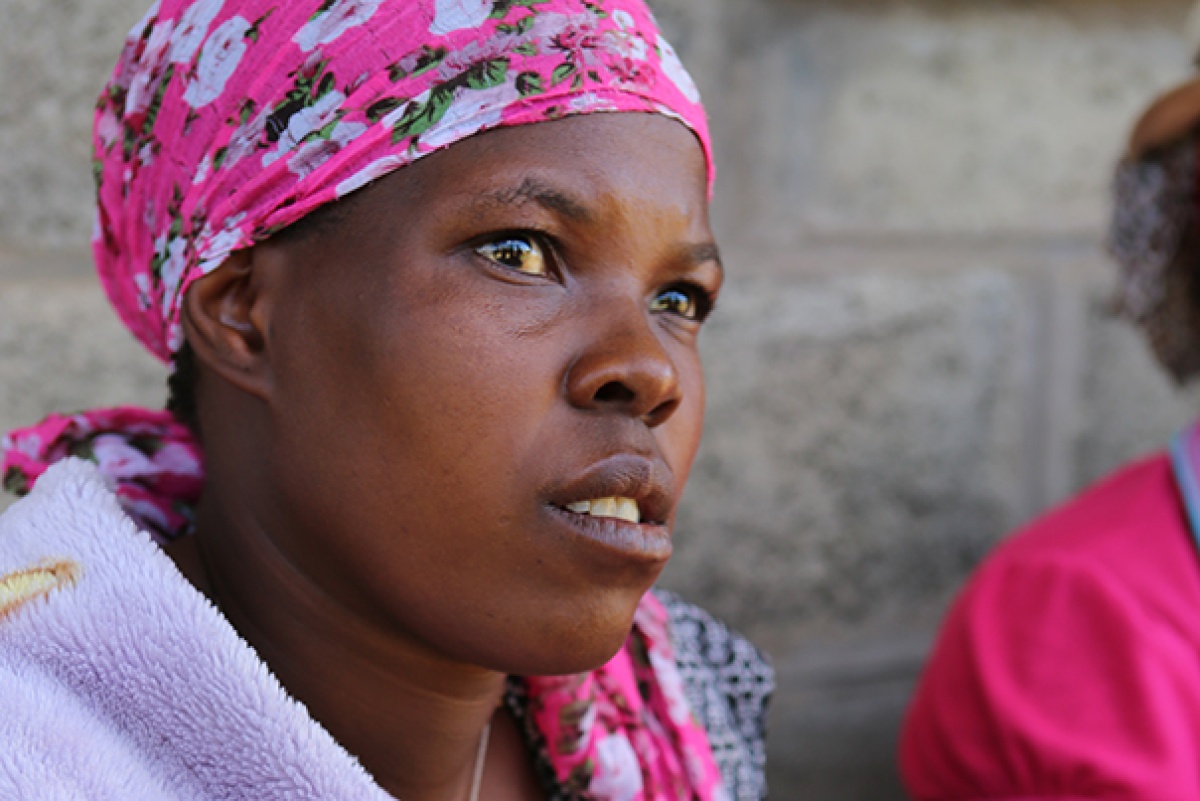Accompaniment in Action: A Safe Birth in Lesotho's Mountains
Posted on Apr 29, 2016

Matumelo Seiiso was expecting her third baby last fall. The 30-year-old mother lived in Nkau, a remote region in the mountains of southern Lesotho. Throughout her pregnancy, Seiiso’s maternal health assistant, Mamopeli Chabana, made regular house calls to check up on her. She also traveled with her to her prenatal appointments at Nkau Health Center, a clinic supported by Partners In Health—known locally as Bo-Mphato Litšebeletsong tsa Bophelo.
One night near the end of Seiiso’s pregnancy, Chabana received an alarming phone call. Seiiso was bleeding profusely. Chabana rushed to her house and became frightened as soon as she saw Seiiso, unsure if the baby was coming, but certain something was wrong. A neighbor drove them to the clinic in Nkau, 30 minutes away. Seiiso continued to bleed.
An ultrasound revealed Seiiso had a placental abruption, a serious complication that could mean her baby would become deprived of oxygen and nutrients. She needed a cesarean section, but the clinic didn’t stock her blood type. So staff members prepared to send her to a hospital in the capital city, Maseru, and hooked her up to an IV. But before the ambulance arrived, Seiiso began to deliver her baby. Nurses and nurse-midwives got to work, and shortly after, Seiiso gave birth to a healthy girl, Lineo.
 |
|
Despite her mother suffering a placental abruption, Lineo Seiiso was born safely thanks to staff at Nkau Health Center. Photo by Rebecca E. Rollins / Partners In Health |
Many women in Lesotho cope with the risks of pregnancy alone, receiving no skilled health care while pregnant and often delivering at home. For this reason, maternal mortality in the country is one of the highest in the world. More than 20,000 women die every year from pregnancy-related complications. PIH has been in Lesotho since 2006 working to change this. By supplying rural clinics with proper medicines and equipment, training doctors, nurses, and midwives, and recruiting community members as maternal health assistants, PIH staff ensure women are properly cared for throughout their pregnancies.
PIH’s maternal health work was recognized by Lesotho’s Ministry of Health as a promising model to apply to the rest of the country, and now similar programs are developing at other public clinics.
However, we know there is more work to do. Continuing to train maternal health workers to care for women, and further equipping clinics with necessary items—including limitless stocks of blood types for patients—are ongoing goals. But Seiiso’s story shows what an attentive assistant, trained clinicians, and a clean nearby health center can do. They ensured her and her baby’s survival.
Seiiso spent several days at Nkau to rest and recover. Six weeks later she returned for Lineo’s final postnatal checkup. While waiting for her appointment, Seiiso recalled the terrifying moments at the clinic and her relief when it was all over.
“I was happy, because I was still alive and had a live baby.”

